News
Naira rated worst performing currency in 2024
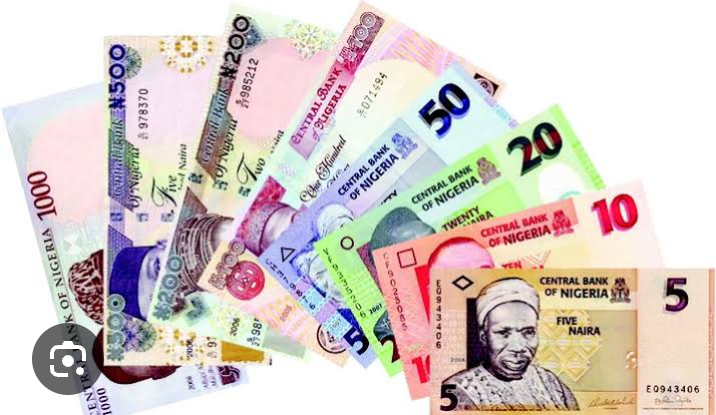
By Kayode Sanni-Arewa
The naira has emerged as the worst-performing currency in the world in the first half of 2024.
According to a report by Bloomberg on Friday, devaluation, insufficient dollar liquidity, and market volatility have hindered efforts by the Central Bank of Nigeria to strengthen the currency.
Besides the naira, Egypt’s pound and Ghana’s cedi were the world’s other worst performers in the first six months of the year.
Tracking data from FMDQ, Bloomberg said that the naira weakened for a ninth straight day to 1,510 per dollar by the close on Thursday.
“The losing streak is the longest since July 2017 and takes the decline since the start of the year to 40 per cent.
“The naira’s performance is the worst among global currencies tracked by Bloomberg beside that of the pound in Lebanon, which is undergoing an economic crisis and witnessing dollarisation,” the report noted.
Providing an update on the currency, the Head of Africa Strategy at Standard Chartered Bank Plc, Samir Gadio, in a mail said, “While the naira is undervalued and has seen significant adjustment. The supply of dollars needs to improve for the currency to be supported.
“Portfolio inflows have yet to pick up, even amid still-attractive local rates
“What will matter going forward is whether it can stabilise on improving foreign exchange inflows and perhaps see some appreciation.”
According to PwC in its latest economic report on Nigeria, the naira depreciated against the dollar by 67.8 per cent from an average of N461.1 in May 2023 to N1,433.80 in May 2024.
“The depreciation took effect despite foreign exchange market reforms by CBN to achieve price discovery and attract liquidity to the market,” PwC said.
In March, the naira had emerged as the best-performing currency in the world, a feat which was reversed the next month.
Bloomberg added that the currency was volatile between mid-April and May due to the imbalance between demand and supply for the greenback before the trend moderated in June on an improvement in dollar inflows.
Meanwhile, earlier this week, the CBN Governor, Olayemi Cardoso, stated that the worst of the naira’s volatility may be over.
The naira has traded in a narrow range between 1,473/$ and 1485/$ this month, according to FMDQ data compiled by Bloomberg.
That has sent its 10-day rolling volatility to the lowest in a year and its 100-day swings to the least since November.
News
Green and Gold Multipurpose Cooperative society celebrates 10th anniversary, pledge to empower more women

By Kayode Sanni-Arewa
A non governmental organization, green and gold multiple purpose cooperative at the weekend in Abuja celebrated it’s 10th anniversary, with a pledge to continue to work towards a world where women are empowered,valued and respected.
Just as the national president of the national council of women societies (NCWS), Princess Edna Azura has charged Nigerian women to have a collective voice in their quest to achieve better opportunities for women in the country.
Princess Edna Azura, who was special guest of honour at the multiple purpose cooperative 10th anniversary commended the society for it’s resilience and focus in improving the state of their members who are majorly women.
She praised their developmental initiatives which have helped empowered many women and assured them of continuous support from women umbrella organization.
In her words:” l am very proud of what you have done as a group, you have been steadfast, resilience and focused and your existence for the last ten years is a clear confirmation that you have grown and ready to move to the next level of journey.Please continue the good work.”
Earlier in her address,the president of the green and gold multiple purpose cooperative society, Mrs Rahab Abbas said ” today,we gather to reflect on our journey, celebrate our achievements, and look forward to a brighter future.
” Over the past decade, our cooperative has grown from a small group of women with shared vision to a thriving organization that has empowered women. We have worked tirelessly to promote economic independence, social justice, and women’s rights.” She added
On the achievements of the group over the years, Mrs Rahab Abbas stated, ” through our cooperative, we have provided training, financial assistance, and support to women, enabling them to start and grow their own businesses. We have also advocated for policies and programs that benefit women.
” Our impact extends beyond economic empowerment.We have created a safe space for women to share their experiences, support one another, and build last relationships.” Abass also observes
In his speech the chairman of the occasion, Dr Ogah Inalegwu, expressed excitement to see a group of women who have chosen against
all odds to carve a niche and break fallow grounds in their quest for a better life,
not just for only themselves but for others as well.
According to him l am privileged to have known the group right from it’s formative days and am
proud to state without doubts that am impressed on your milestone.
“Today serves as an opportunity for me to speak to a group of very enlightened
women, with a heart accommodative to learn. I will not forgo the opportunity to
share practical discussions and a charge to push you even further in my desire to
see you grow.”
“It is believed that the illiterate of the 21st century are not the people who are
unable to read and write, but the one who are unable to unlearn what they have
learnt, and re-learn what is needed for the present situation.”
“If a woman is empowered then a nation is liberated, so I beseech and challenge
you to kindly have it in mind that to be empowered, there is a need to be
financially liberated, to be liberated financial then multiple streams of income
becomes the basic language.
My question then becomes what can you, yes you do to earn additional income?
I want this answers personalized and implemented, I have had reason to push a
couple of people, women inclusive to start and sustain income generating
steams, I want to pledge my desire in any way I can to members of the group or
invitees to be available on personal grounds if contacted.
I won’t want to take all your precious time, even if you can’t remember
anything I said today, please just take home these words ‘To be a good person
and help others you need to be financially free and one empowered woman
equals a prosperous nation’.” He further noted
As part of the program was a N10 million naira fundraising appeal empowerment scheme to support more women .
News
*Eid-el-Fitr: Owner of Harmony Gardens and Estate Development, Hon. Saheed Mosadoluwa Rejoices With Muslims*

By Kayode Sanni-Arewa
Honourable (Alhaji) Saheed Audullahi Mosadoluwa, the Chief Executive of Harmony Gardens and Estate Development Limited has congratulated Muslim Ummah for the successful completion of fasting in the blessed month of Ramadan and the celebration of 2025 edition of Eid-el-Fitr.
The Oyo town-born businessman also enjoined Muslims to imbibe the virtues of tolerance, togetherness, love and compassion as exemplified by Prophet Muhammad SAW.
Fielding questions from journalists in Lagos after Eid prayer on Sunday, Honourable Mosadoluwa said:
“For the 30 days of fasting and spiritual sacrifice to manifest positivity for our nation, Nigeria, it became important and necessary to appeal to Muslims to remain unshakeable in their support and prayers for President Bola Ahmed Tinubu and other leaders across the strata of the Nigerian society.
“Ramadan is a month dedicated to fasting, prayer, self-discipline, and spiritual growth. It is the time when Muslims strive to attain God-consciousness (Taqwa) and to purify their souls. The Quran highlights the purpose of fasting in Surah Al Baqarah (2:185). The month becomes a time of community bonding, increased worship, nearness to God, and hope for God’s forgiveness and mercy.
“Eid Al Fitr is celebrated as an expression of gratitude to God for granting believers the strength to complete this month-long journey of self-restraint and devotion. It is not merely the end of fasting but a continuation of its lessons, reminding Muslims to carry forward the values of patience, humility, and generosity into their daily lives for the remainder part of the year.
“Eid Al Fitr is not merely a day of festivity but a reflection of the transformation achieved through Ramadan. The holy month of fasting, prayer, and introspection is intended to strengthen one’s relationship with God and reinforce the moral character expected of a believer. Eid serves as an opportunity to engage with the world, embodying the piety attained during Ramadan while carrying forward the lessons of patience, gratitude, and self-restraint.
“Undoubtedly, Eid is a profound reminder that self-discipline, gratitude, and charity should steer a believer’s actions throughout the year. Eid Al Fitr remains a timeless beacon of faith, unity, and moral responsibility in an ever-changing world.”
Honarable Mosadoluwa also urged Muslims to use 2025 Eid-el-fitr celebration to reflect on the lessons of Ramadan, praying Almighty Allah to shower His countless blessings, peace and prosperity for all Muslim faithful, even as he expressed optimism for sustained peaceful coexistence among all Nigerians.
News
Former HoR member, TeeJay Yusuf calls on IGP, Kogi govt, other agencies to curb rising insecurity in Okun-Yoruba

A former House of Representatives member, Hon TeeJay Yusuf has called on Inspector General of Police, Kayode Egbetokun, Kogi government and other security agencies to quickly curb the rising insecurity in Okun area of Kogi State.
Hon TeeJay Yusuf made this disclosure in a statement he personally signed on Monday stating that:
“Given the increasing state of insecurity across Okun Land; particularly Bunu District of Kogi State in the past few months, I wish to strongly urge the Kogi state Government, and all security agencies to urgently take more proactive measures towards addressing the precarious situation.
“According to reports, indigenes and residents of communities across the stretch of the five local government areas that make up the Okun-Yoruba axis of the state have been victims of attacks by groups of charlatans whose identities are not known.
“More so, it is very sad that people in the Bunu District within Kabba-Bunu LGA, have been subjected to perennial harassment, intimidation, and kidnapping by some hideous criminals.
“From reports, these callously wicked, and criminally-infected persons attack, and kidnap innocent people of these communities with brazenness. More intriguing is that, some victims are kidnapped directly from the comfort of their homes; while sleeping at night.
” Aside subjecting their victims to unexplainable, and pitiable shocks and pain, they; and their families, friends, and respective communities are harrowed and forced to pay huge sums of ransom; that are not readily available as the majority are peasant farmers.
“Many people believe that the unrestrained cases of kidnapping and similar attacks on the communities are not unconnected to the chequered manner in which the Kogi state government allegedly opened its borders to people of questionable characters; in the name of politics between 2020 and 2022.
“Also, some other people alluded to the fact that, given their styles of operations and idiosyncrasies, the influx of these people to different locations in Okun Land, may have contributed in no small measures to the worrying, and disturbing situation at hand.
“As a result of the frequency of these nefarious and callous attacks, the peace loving people of these communities are experiencing psychological torture, and emotional pain as they now live in perpetual fear, worries, and anxiety; not knowing who the next victim will be.
“Also, the people, who are basically farmers have practically abandoned their farmlands, out of fear of being kidnapped. This development, has brought about hunger, poverty, and untoward hardships across the communities and towns in the affected areas.
“Noting the preponderance of kidnapping and attacks on our people, I humbly call on the state government to immediately emplace result-yielding measures to effectively tackle the disturbing trend. Also, I implore various law enforcement and security agencies, with necessary support from the state government to collaborate with one another towards ensuring the protection of lives and properties in these communities.
“Finally, as I sympathise with the families, friends, colleagues, and associates of those that have been victims of these dastardly attacks, I appeal for calm, law, and order as government and relevant agencies do all that is necessary in tackling the menace.
“It is imperative to reiterate that the state government must do everything lawful to safeguard the safety of her citizens, and their properties; which is the primary function of the administration.”
Rt. Hon. TeeJay Yusuf
(3-Term Member, House of Representatives; representing Kabba-Bunu/Ijumu Federal Constituency)
-
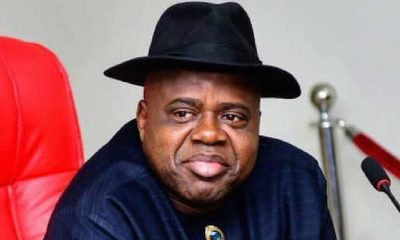
 News12 hours ago
News12 hours agoUpdated: WATCH moment Gov Diri’s Tech Adviser Kerry admits blowing up pipelines (Video)
-
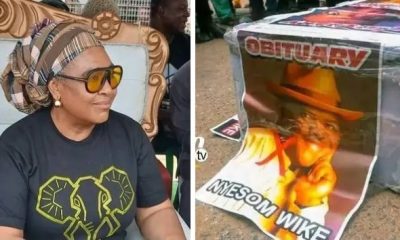
 News6 hours ago
News6 hours agoWike’s Aide reacts as photo appears online, points accusation finger at paid failed actress
-
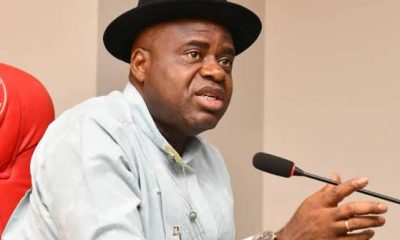
 News20 hours ago
News20 hours agoWATCH Gov Diri’s Tech Adviser, Kerry admits blowing up pipelines
-
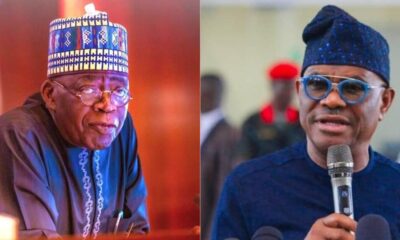
 News22 hours ago
News22 hours ago“How I threatened to fire Wike over TSA exemption but I’m happy with him”-Tinubu
-
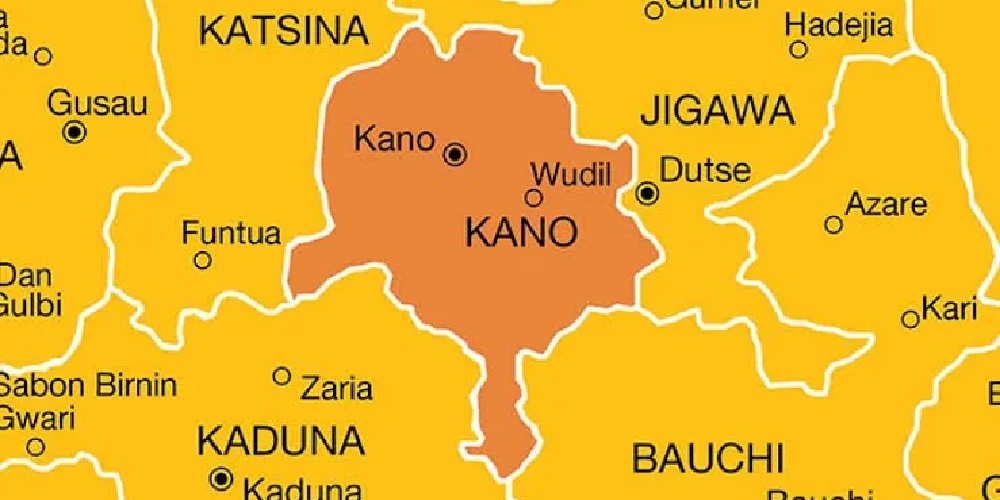
 News3 hours ago
News3 hours agoEdo Killings: Kano Govt Sends Fact-Finding Delegation, Demands Justice
-

 Entertainment22 hours ago
Entertainment22 hours agoEdo Assembly member, Natasha Updates Social Media with Fiancé’s Surname, Idibia
-

 News7 hours ago
News7 hours agoN24bn monthly salaries drive Oyo’s economic stability – Makinde assures
-

 News22 hours ago
News22 hours agoElon Musk Sells X To His AI Company






